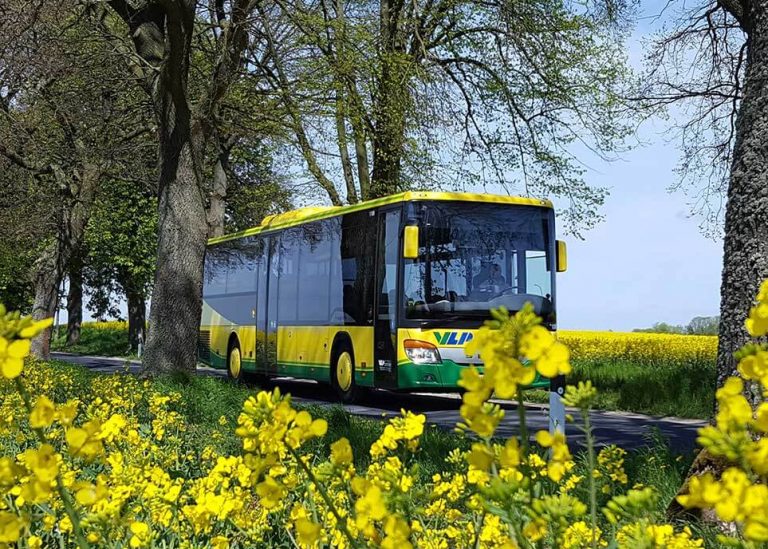IKEM examines the interaction between local public transport and the energy industry in an integrated electromobility concept for public buses

Because the greenhouse gas emissions of the transport sector have hardly decreased so far, action must be taken quickly so that Germany can achieve its climate targets. Coupling the electricity and transport sectors via electromobility is the most promising strategy for decarbonising road transport.
After the focus in electromobility has so far been primarily on private transport, the EUniS project is shifting the focus on public transport in rural areas: Together with the Ludwigslust-Parchim transport company (VLP), a comprehensive transport and energy management concept for the electrification and system integration of public buses is being developed developed and tested in practice. The project is based on the idea that public buses are not only particularly suitable for electrification due to the plannable travel cycles and downtimes, but that they can also provide system services through controlled charging. For example, the storage function of the buses is intended to contribute to avoiding network bottlenecks in an electricity system based on renewable energies.
In EUniS, IKEM responsible for the accompanying legal research. IKEM identifies regulatory obstacles, develops options for action for a legally secure implementation of the project and writes legal studies on the system integration of e-buses in public transport. These should be able to be used as a blueprint for comparable projects.
Rahn, Sina; Kamenz, Sophie
Factsheet. Veröffentlicht im Rahmen des Projekts EuniS. 2023.
Rahn, Sina; Kamenz, Sophie
Factsheet. Veröffentlicht im Rahmen des Projekts EuniS. 2023.
jana.eschweiler@ikem.de
+49 (0)30 408 1870-27
Development and implementation of a sustainable and innovative system integration concept for the sector coupling of traffic and electricity
Principal: Federal Ministry of Transport and Digital Infrastructure
Funding programme: Elektromobilität vor Ort
Project partner: eMIS Deutschland, ENERGCON, Verkehrsgesellschaft Ludwigslust-Parchim, WEMAG AG, WEMAG Netz
Duration: 11/2020–10/2023
© Institute for Climate Protection, Energy and Mobility – Law, Economics and Policy e.V.